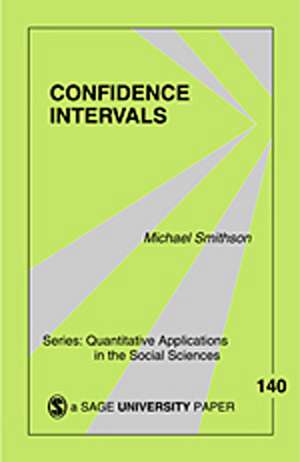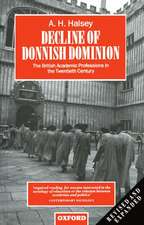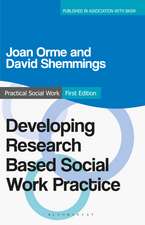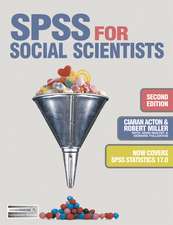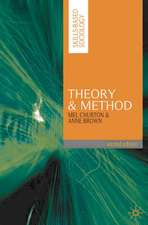Confidence Intervals: Quantitative Applications in the Social Sciences, cartea 140
Autor Michael Smithsonen Limba Engleză Paperback – 13 ian 2003
Din seria Quantitative Applications in the Social Sciences
-
 Preț: 306.08 lei
Preț: 306.08 lei -
 Preț: 230.27 lei
Preț: 230.27 lei -
 Preț: 270.25 lei
Preț: 270.25 lei -
 Preț: 268.59 lei
Preț: 268.59 lei -
 Preț: 304.51 lei
Preț: 304.51 lei -
 Preț: 313.80 lei
Preț: 313.80 lei -
 Preț: 305.60 lei
Preț: 305.60 lei -
 Preț: 306.14 lei
Preț: 306.14 lei -
 Preț: 268.01 lei
Preț: 268.01 lei -
 Preț: 269.92 lei
Preț: 269.92 lei -
 Preț: 271.79 lei
Preț: 271.79 lei -
 Preț: 305.05 lei
Preț: 305.05 lei -
 Preț: 305.32 lei
Preț: 305.32 lei -
 Preț: 304.77 lei
Preț: 304.77 lei -
 Preț: 305.05 lei
Preț: 305.05 lei -
 Preț: 304.51 lei
Preț: 304.51 lei -
 Preț: 305.28 lei
Preț: 305.28 lei -
 Preț: 304.51 lei
Preț: 304.51 lei -
 Preț: 305.60 lei
Preț: 305.60 lei -
 Preț: 304.77 lei
Preț: 304.77 lei -
 Preț: 306.14 lei
Preț: 306.14 lei -
 Preț: 306.34 lei
Preț: 306.34 lei -
 Preț: 305.40 lei
Preț: 305.40 lei -
 Preț: 306.41 lei
Preț: 306.41 lei -
 Preț: 305.60 lei
Preț: 305.60 lei -
 Preț: 269.91 lei
Preț: 269.91 lei -
 Preț: 283.40 lei
Preț: 283.40 lei -
 Preț: 282.06 lei
Preț: 282.06 lei -
 Preț: 283.76 lei
Preț: 283.76 lei -
 Preț: 283.20 lei
Preț: 283.20 lei -
 Preț: 284.35 lei
Preț: 284.35 lei -
 Preț: 282.65 lei
Preț: 282.65 lei -
 Preț: 284.89 lei
Preț: 284.89 lei -
 Preț: 282.27 lei
Preț: 282.27 lei -
 Preț: 282.27 lei
Preț: 282.27 lei -
 Preț: 283.40 lei
Preț: 283.40 lei -
 Preț: 283.02 lei
Preț: 283.02 lei -
 Preț: 282.65 lei
Preț: 282.65 lei -
 Preț: 282.06 lei
Preț: 282.06 lei -
 Preț: 283.97 lei
Preț: 283.97 lei -
 Preț: 284.15 lei
Preț: 284.15 lei -
 Preț: 282.44 lei
Preț: 282.44 lei -
 Preț: 282.65 lei
Preț: 282.65 lei -
 Preț: 284.15 lei
Preț: 284.15 lei -
 Preț: 284.15 lei
Preț: 284.15 lei -
 Preț: 282.81 lei
Preț: 282.81 lei -
 Preț: 282.65 lei
Preț: 282.65 lei
Preț: 270.29 lei
Nou
51.73€ • 54.27$ • 42.92£
Carte disponibilă
Livrare economică 08-22 ianuarie 25
Livrare express 24-28 decembrie pentru 20.12 lei
Specificații
ISBN-10: 076192499X
Pagini: 104
Ilustrații: Illustrations
Dimensiuni: 140 x 216 x 6 mm
Greutate: 0.13 kg
Ediția:New.
Editura: SAGE Publications
Colecția Sage Publications, Inc
Seria Quantitative Applications in the Social Sciences
Locul publicării:Thousand Oaks, United States
Cuprins
Ch 2 Confidence Statements and Interval Estimates
Why Confidence Intervals?
Ch 3 Central Confidence Intervals
Central and Standardizable versus Noncentral Distributions
Confidence Intervals Using the Central t and Normal Distributions
Confidence Intervals Using the Central Chi-Square and F Distributions
Transformation Principle
Ch 4 Noncentral Confidence Intervals for Standardized Effect Sizes
Noncentral Distributions
Computing Noncentral Confidence Intervals
Ch 5 Applications in Anova and Regression
Fixed-Effects ANOVA
Random-Effects ANOVA
A Priori and Post-Hoc Contrasts
Regression: Multiple, Partial, and Semi-Partial Correlations
Effect-Size Statistics for MANOVA and Setwise Regression
Confidence Interval for a Regression Coefficient
Goodness of Fit Indices in Structural Equations Models
Ch 6 Applications in Categorical Data Analysis
Odds Ratio, Difference between Proportions and Relative Risk
Chi-Square Confidence Intervals for One Variable
Two-Way Contingency Tables
Effects in Log-Linear and Logistic Regression Models
Ch 7 Significance Tests and Power Analysis
Significance Tests and Model Comparison
Power and Precision
Designing Studies Using Power Analysis and Confidence Intervals
Confidence Intervals for Power
Concluding Remarks
References
About the Author
Notă biografică
Michael Smithson is a Professor in the Research School of Psychology at The Australian National University in Canberra, and received his PhD from the University of Oregon. He is the author of Confidence Intervals (2003), Statistics with Confidence (2000), Ignorance and Uncertainty (1989), and Fuzzy Set Analysis for the Behavioral and Social Sciences (1987), co-author of Fuzzy Set Theory: Applications in the Social Sciences (2006) and Generalized Linear Models for Categorical and Limited Dependent Variables (2014), and co-editor of Uncertainty and Risk: Multidisciplinary Perspectives (2008) and Resolving Social Dilemmas: Dynamic, Structural, and Intergroup Aspects (1999). His other publications include more than 170 refereed journal articles and book chapters. His primary research interests are in judgment and decision making under ignorance and uncertainty, statistical methods for the social sciences, and applications of fuzzy set theory to the social sciences.
